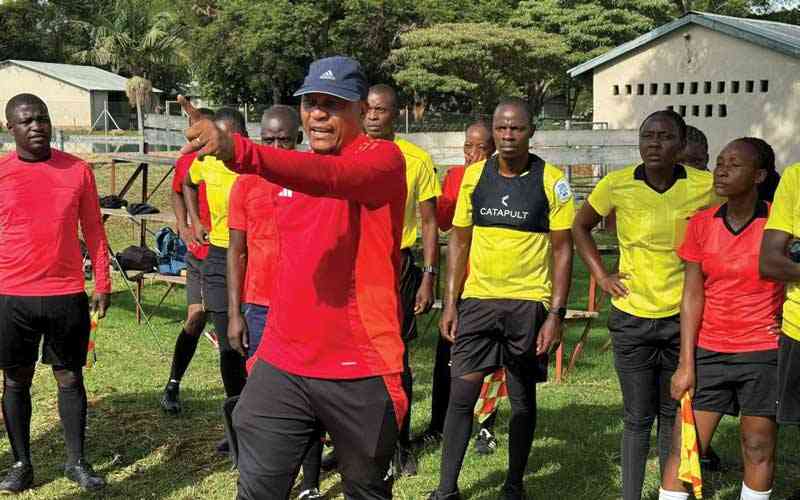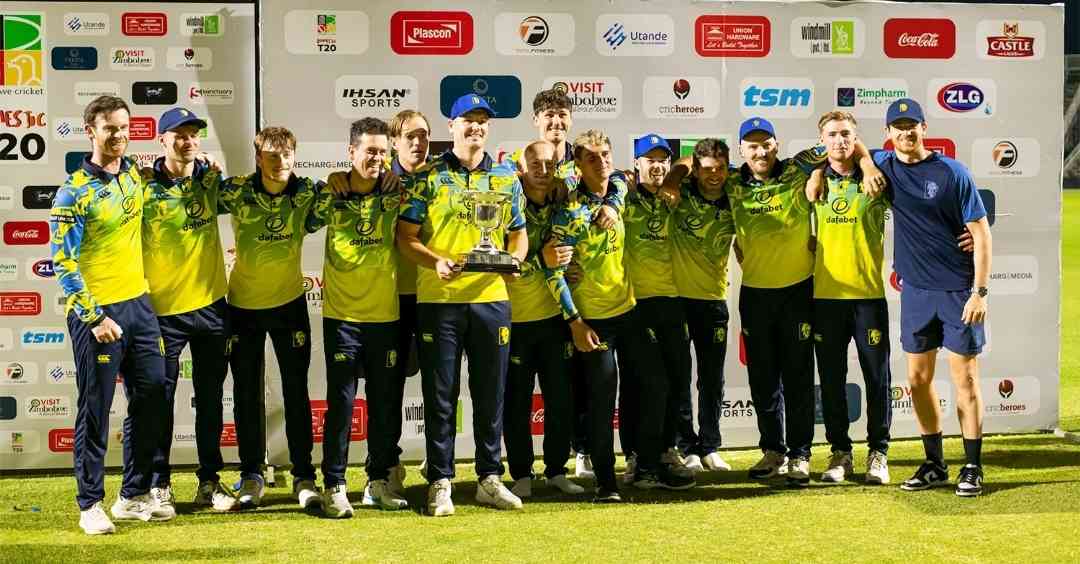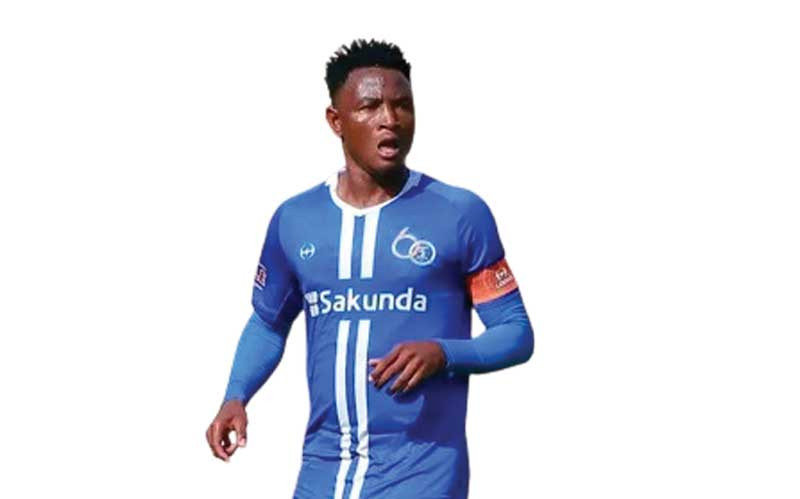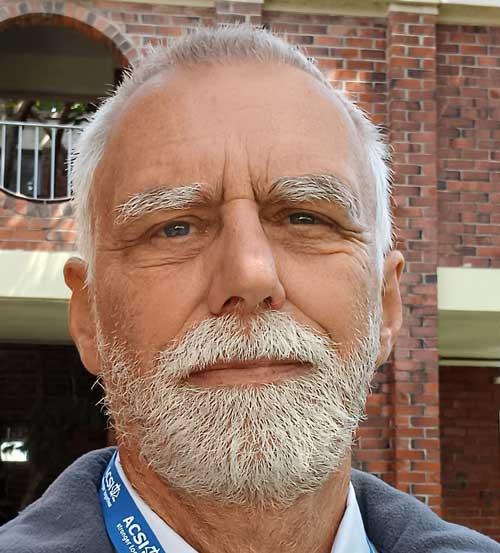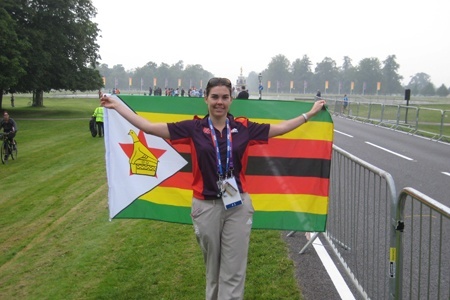
Zimbabwe might have posted its record lowest athlete representation at the 2012 London Olympics, but the country can take pride in having one of its own being involved in organising the global sports fiesta.
REPORT BY MICHAEL MADYIRA
After London was announced as the Olympics host city, Tanya Cavanah became the third recruit for the London Olympics and Paralympic Organising Committee (Locog) after being selected ahead of 300 other applicants in two legs of interviews held in late 2005.
Back then, the then 28-year-old’s sports management experience was a sports administration diploma and a seven-year working stint in British football and tennis. “I worked for the Football Foundation as a Capital Grants administrator and then led the development of the largest sports database in the United Kingdom [UK] at that time. This is the register of English football facilities in the UK,” said Cavanah.
With the fans spoiling themselves in the festivities, thrills and spills that come with the Olympics, the hard work and strenuous effort invested in the staging of an event of such magnitude often escapes everyone’s minds.
For six years and five months prior to the Olympics, Cavanah worked in different Locog departments, each assigned to perform a special role behind the scenes in arranging the global event which ran from July 27 to August 12.
“For all departments, Logistics in particular, our Games commenced way before the athletes arrived in order to get the venues ready for the athletes, media and spectators alike,” said the Harare born and bred Cavanah.
“The last six months leading up to the Games were stressful and involved long hours and working over weekends to fine-tune operating plans. As we approached the last couple of months, people really pulled and worked together to get things done.”
- Chamisa under fire over US$120K donation
- Mavhunga puts DeMbare into Chibuku quarterfinals
- Pension funds bet on Cabora Bassa oilfields
- Councils defy govt fire tender directive
Keep Reading
Cavanah assumed another duty of managing the programme of training venues for all disciplines by identifying potential training venues that meet international federations’ requirements, as well as determining the works required to upgrade them to Olympics and Paralympics standards.
In that programme, she was heading a team of venue logistics managers and their deputies.
In her last 18 months, Cavanah headed road events like marathon, triathlon, walking race and cycling in the Logistics department where she managed the crowd control barrier contractor for the Games.
“On event days, my role was to manage the barrier contractor, carrying out installations of barriers, feed stations and sports protection. For the road cycling and time trial events which had a geographical range of 130km, I was based in the control tower which accommodates 200 people, managing radio operations on the ground. For the marathon, triathlon and race walk, I was able to carry out this activity from a car on the ground. All road events involved over 300km worth of logistical movements of barriers,” said Cavanah.
“Much of the activity for road events happened on event days within road closures and it is a highly pressurised environment, because there is no margin for error.”
While working on the ground, she managed to wish good luck to Zimbabwean marathoners: Wirimai Zhuwawo and Cuthbert Nyasango.
“This role enabled me to be right up close to the action and I even got to say fambai zvakanaka [good luck] to our two marathon runners before they set off,” she said.
Having attended Chisipite Junior and Senior schools, Cavanah represented the Zimbabwe school’s hockey team and the national gymnastics team in the 1990s. She feels her sport administration experience puts her in good stead to help Zimbabwe’s sport.
“I can be of assistance from a sports administration perspective providing guidance on grassroots, development through to strategic direction and growth for elite sport,” said Cavanah.
“The Zimbabwean ethos for sport has always been fantastic and that makes me proudly Zimbabwean. Zimbabweans are by nature highly competitive. The country needs to build on its existing talent. The key concern though is funding for sport and ensuring it gets spent in the right places.
“More money is required to build top-class facilities, bring in equipment, train coaches and fund sports programmes. I have seen how public or private partnerships can be effective in delivering in the UK and believe it’s a strong avenue for developing sport,” said Cavanah.
Now based in Perth Australia, where she recently moved to, Cavanah was last in Zimbabwe in September after the Paralympics.
With the 1995 All-Africa Games being the only biggest sporting event that Zimbabwe has hosted before, the country’s sporting facilities have remained substandard. As noted by Cavanah, “Training venues have left an incredible legacy at grassroots level for schools and clubs around London with investment including brand-new facilities, sprung floors, hockey pitches and athletics tracks.”
Cavanah’s first five years The first five years saw Cavanah working in the sports department where her role was managing the planning of 10 sporting disciplines.
Her duties included early scoping of key projects such as sports technical requirements, equipment, competition schedules and training venues.
The 35-year-old then worked with the Venues and Infrastructure team as well as the Olympic Delivery Authority (ODA) where her responsibilities included ensuring that venues were fit for purpose in consultation with venue project managers and designers.

